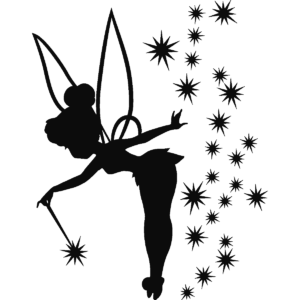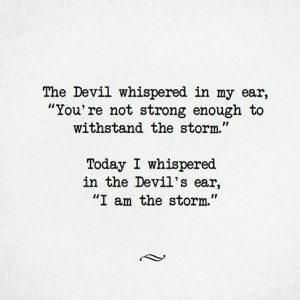Category — Life
Nevertheless, she disappeared.
 I learned a big lesson recently: I am utterly and completely replaceable.
I learned a big lesson recently: I am utterly and completely replaceable.
No, not at home! I am talking about in the workplace.
You would think this revelation would be depressing: I am not as important as I fooled myself into thinking I was! But it wasn’t depressing. It isn’t depressing. It is instead an ego-confronting moment that has the power to transform. It is liberating.
I recently exited a place where I had been working for a very long time. A very very long time. I was single and childless when I started working there. People typed memos and placed them in mail slots when I started working there. Over the course of multiple decades and more than a dozen book projects, I worked at this place, became part of its fabric, became a weaver of its fabric.
And then, suddenly, it became harder and harder to be a weaver. But that’s what I am. I need to weave. And so I needed to go.
I left, by design, without a public announcement, without the standard good-bye party. I wanted it that way for a number of reasons, including this one. I wanted to know: Would anyone realize I was gone? Would I leave behind a hole where I used to be? Was I, you know, irreplaceable?
The answers? No. No. Yes.
I am so very thankful to have learned this. The exit experience shows me how essential it is to do things, to create, innovate, weave, whatever, to contribute, for the good of the order, for the joy of it, for the fun of it – and not for the ego, for the (oh please) enduring legacy. I love that whatever tiny hole I might have left behind so quickly closed that no one was aware that it had existed at all. I love that I was the only one who honored my exit.
I wrote about just this kind of moment at the end of my last book, Raising the Barre, when, after my final performance dancing with the Eugene Ballet Company – an accomplishment I doubted even as I was doing it — I didn’t arrange to meet up with anyone to note the occasion. I hurried out of my costume, jumped in my car and started to drive home. Then, suddenly, I wasn’t in a hurry. I wanted to sit in the moment for a while. So I stopped at a neighborhood watering hole. Here’s what I wrote. It’s the last scene in the book:
Me and my baggy sweats and my over-the-top eye make-up walk into the bar and sit between an old guy eating a burger and a young hipster nursing an IPA. And they don’t know who I am or where I’ve been or what I’ve done. And that’s just as it should be. Because the only person who knows what this means to me, the only person who can truly celebrate this moment with me, is me.
February 15, 2017 15 Comments
Doing time
 For two hours every other Thursday we sit in an incongruously cavernous room around a rickety table drinking bad coffee out of Styrofoam cups and talking story. How to tell a story, why to tell a story, how writing is thinking, how writing lets you see what you ignore, remember what you forget, feel what you built a wall around feeling, how to craft a narrative of your own life so nobody but you can own it.
For two hours every other Thursday we sit in an incongruously cavernous room around a rickety table drinking bad coffee out of Styrofoam cups and talking story. How to tell a story, why to tell a story, how writing is thinking, how writing lets you see what you ignore, remember what you forget, feel what you built a wall around feeling, how to craft a narrative of your own life so nobody but you can own it.
The other people around the table, eight of them, are Lifers, men who have been sentenced to either Life with or Life without. The “with” and “without” refer to the possibility of parole. Possibility. One of the guys is entering year 34 of a Life with sentence. He’s been denied parole eight times so far. Three of the guys were sentenced to Life when they were 17, one without the possibility of parole. The oldest in the group will be 79 next month. The youngest is 37.
You get a Life sentence for doing something bad, generally very bad. Not “just” murder, but aggravated murder. When I started working with these guys, coming into the maximum security prison to lead a writers group, I stayed purposely ignorant of the details of their crimes. I wanted to see them for the men they were now not who they were when they did the worst thing they’d ever done. I asked them not to tell me their last names so I wouldn’t be tempted to look them up in the system.
For a time, that worked. Now, for various reasons mostly having to do with references in their writing and conversations around the rickety table every other Thursday, I know. I know sometimes more than I want to know.
And here’s something odd and in a way wonderful and for me transformational: It doesn’t matter. I see clearly what they did. I see the horror and cruelty and amorality of it. But I also know who they have become. I see how almost all of them have, over time, faced the guilt, the shame, the pain they caused and continue to cause, the lives they ruined that they can never make amends for, the history they forever changed. I see that, against all odds, some are blooming where they have been planted. I see that change is possible, that emotional, psychological, moral rehabilitation is possible. I see that the cracks have let the light in.
I am learning so much more than I am teaching.
February 8, 2017 9 Comments
I HEART books
 Scent triggers memory in a special, direct and immediate way. This was explained to me once – some kind of hardwiring from nasal receptors to frontal lobe – but not well enough so that I can explain it now. But we all know it’s true: a whiff of something, cut grass, gasoline, chocolate chip cookies, and we’re transported to another time and place, an entire scene evoked, a little drama played out on the stage of the mind.
Scent triggers memory in a special, direct and immediate way. This was explained to me once – some kind of hardwiring from nasal receptors to frontal lobe – but not well enough so that I can explain it now. But we all know it’s true: a whiff of something, cut grass, gasoline, chocolate chip cookies, and we’re transported to another time and place, an entire scene evoked, a little drama played out on the stage of the mind.
I think books are hardwired like this for some of us. There’s a high-speed connection between book and experience, between what we’ve read and who we were when reading. We have only to glance at a book, the way others catch a scent in the air, and we experience that moment in time when the book intersected with our lives.
I see Richard Brautigan’s The Pill v The Springhill Mine Disaster on my bookshelf. I haven’t read it in thirty years, and I suspect that if I tried to read it now I’d find it lacking. But it’s not just a book. It’s a time in my life. I am standing on the shoulder of I-80 in Nebraska hitching my way across the country. I have only two books in my backpack, Brautigan and the I Ching.
James Clavell’s Shogun? That solitary winter vacation I spend in my first house, the one with no central heating, curled up in an armchair by the window existing on pots of Seattle spice tea and packages of Archway chocolate chip cookies.Annie Dillard’s The Living? An impossibly rainy summer vacation in Bandon, Oregon, during which my then four-year-old son gets clobbered in the head with a boat oar, and we have to rush him to the 15-bed local hospital to get his ear lobe reattached. My books, spine out on the shelves in my library, are entries in a diary I didn’t know I was keeping.
In between the pages, too, are hints of life lived. I go to the shelf and pull out My Mother, Myself, the hardback edition published in 1977, which was a particularly nasty year in the already rocky relationship I had with my mother. Tucked in between pages 44 and 45 I find her photograph, one I must have taken from an old album. My mother looks sweetly at the camera. She has a mop of dark, curly hair and is holding a doll. She is perhaps ten. In Wild Alaska, a Time-Life book with page after page of stunning Arctic pictures, I find a menu for a little restaurant I used to frequent a block from the Fullerton El, just around the corner from my fourth-floor walk-up. I read that book on the fire escape and dreamed of the great north during my last and sweatiest summer in Chicago.
Now I see something peeking out of the pages of my beat-up paperback edition of Zen Flesh, Zen Bones, and, with great excitement, I pull the book from the shelf. What could it be? What could I have placed between the pages of this wonderful book, this book that made me think thoughts I had never thought before, this book that prompted me to sign up for my first yoga class, this book that I carried around like a talisman for years? I am ready to be wowed.
It‘s an appointment card. On Thursday, Sept. 24, 1997, I went to get my teeth cleaned.
January 18, 2017 6 Comments
When someone believes in you
 Have you ever had a mentor? You know, that near-mythical creature: wise, experienced, generous, encouraging, inspiring. She takes you under her wing. Or his. She points you in the right direction. She, you know, makes a few calls.
Have you ever had a mentor? You know, that near-mythical creature: wise, experienced, generous, encouraging, inspiring. She takes you under her wing. Or his. She points you in the right direction. She, you know, makes a few calls.
I haven’t.
What I’ve had, at various points in my life, are people who believed in me. They didn’t mentor me. Rather, they expressed, in small — and unexpected — ways, that they thought I was capable of great things. What an extraordinary difference this can make. What an extraordinary difference this has made.
Of course you have to believe in yourself, but when you’re 8 going on 9, you may need help. That’s when Mrs. Fox, my teacher, gave me a list of books she thought I’d like to read. A special list. Just for me. Because she saw my early passion for reading. Because she believed I could become the voracious reader I would become.
Some years later, it was Mr. Hawkey, ramrod straight, starched collar (equally starched personality) Mr. Hawkey, Mr. Discipline, Mr. Hard-ass – my 11th grade English teacher – who said to me, as I exited his classroom on the last day, “Don’t waste your talent.” Wow. Mr. Hawkey thought I had talent.
Otis Pease, the best and most brilliant professor I’ve ever had or could hope to have, treated me with quiet respect. To be respected by a man like that was almost overwhelming. It made me want to be worthy. It inspired me.
A few years later, I had a brief encounter with Robin Morgan, a name that might not be familiar to you. Robin Morgan was a pillar of the second-wave feminist movement, the co-founder of Ms., an author, a poet, a national voice. A big deal. She was delivering a speech on campus, and I got to introduce her.
The speech was amazing. She was amazing. I had never been that close to someone who burned so brightly, who radiated such energy, whose energy filled a space so completely.
I knew a lot about her. I had spent hours researching her to write the introduction. She knew nothing about me. But after the speech, when I ran over, beating the crowd, to grasp her hand, she looked at me, really looked at me, studied me, and said: “Lauren, you’re up next.”
And that’s what I needed.
That’s what we all need: People who see our potential. People who believe in us.
January 11, 2017 4 Comments
Be it resolved
 Are you one of the 60 percent of Americans who made New Year’s resolutions this year?
Are you one of the 60 percent of Americans who made New Year’s resolutions this year?
Are you one of the 92 percent who will ultimately fail to keep those resolutions?
That’s right, research suggests that only 8 percent of people successfully keep any of the resolutions they make. Thirteen percent, after “resolving,” don’t even make an attempt to carry through; 12 percent cave in one day; 27 percent keep the resolution for less than week; 26 percent have forgotten their promises to themselves in less than a month. And here’s something funny: 95 percent of those who make resolutions (remember 92 percent don’t keep them), plan on doing the same thing again next year.
What do people resolve? Pretty much what you think, according to a recent survey of 2000 respondents. Women make health-focused resolutions. Men pledge to find a new job and cut down on drinking. Saving money is one of the top 5 New Year’s resolutions — and also in the top 5 for most commonly failed. Sad to report that 5 ½ times as many people resolve to go on a diet as resolve to spend more time with their families. However, I did take heart that 13 percent resolved to read more books. So there’s that. Now if they’d only resolve to read more of MY books.
Why don’t most of us keep our resolutions? Wisdom gleaned from various self-help/ empowerment websites (which is to say, people telling us what we already know but delivered in bumperstickerese) suggests that it’s because our resolutions are too vague (“lose weight” “spend less money”), and as a function of their vagueness, do not call for an actual plan with measurable goals. You know, as they say in the corporate word: deliverables. Also, some resolutions appear to be the result of being pressured by a partner, boss, or someone else who thinks they know what’s good for you and not a change the person truly wants to make.
Making a change is hard, resolution time or not. Change requires a compelling, deeply felt reason to change.
The Why has to be big enough.
It has to be big enough, important enough, meaningful enough to motivate you when it gets dark at 4:30 and you’re cranky and you hate everyone at work and your agent just sent you a half dozen no-thanks letters from publishers who’ve looked at your latest proposal and in a few weeks a person who stands for everything you stand against will be your president. The why has to sustain you through the tough times and for the long haul.
Resolving to change requires a thoughtful plan. It requires energy, not just that spark of energy that ignites an idea but that banked energy that you can draw on, day after day, month after month.
Have you made promises to yourself for 2017? Is there a big Why behind them?
January 4, 2017 3 Comments
Iceamageddon
 What I learned during a seven-day power outage, the unhappy result of an extraordinarily destructive ice storm, a home nestled among the tall timber and an understaffed rural utility company.
What I learned during a seven-day power outage, the unhappy result of an extraordinarily destructive ice storm, a home nestled among the tall timber and an understaffed rural utility company.
**People really are nicer during a disaster. It’s a cliché, and I have nothing new to add. Just glad it’s true. And I wish people could be this kind all the time.
**Dogs are perfectly fine in commercial establishments. This past week I’ve been spending more time than I’d like to admit at my local Starbucks (warmth, internet, nice bathrooms). And guess who else is here? Dogs. Six or seven or even eight dogs, sitting quietly (and warmly) while their outage-ravaged human companions do what I am doing. The staff has turned a blind eye. We have all kinds of ordinances and policies against this. In Europe dogs accompany their people into coffeehouses, restaurants, clothing – and Europeans seem to be doing just fine.
**Speaking of animals: Cats rule. Our cat, Simon Baker (yes, sorry) disappeared during the worst of the ice storm and stayed out for 48 frigid hours. Huge limbs of oaks and firs were crashing down. We thought he was a goner. But the cat came back.
**Oh. And fish. They hibernate when their fishbowl water dips below 40 degrees. What a great plan.
**When someone asks you how things are going and you tell them your house is 38 degrees and you have no running water and you can’t flush the toilet and you had to throw out everything in the refrigerator, including a tureen of home-made soup, you do NOT want them to tell you about a much worse thing that happened to them. You want them to pat your arm and offer to do your laundry.
**I think it’s okay to feel a little sorry for yourself even though you are a privileged first-world person who is just temporarily experiencing what is actually a minor hardship. I know how fortunate I am, really I do. But I think, as day 7 without power slides into day 8 and the thermometer dips and the tips of my fingers start going numb, that I’ve earned the right to whimper.
December 21, 2016 No Comments
Defying Gravity
 It’s easy to be upbeat when things are going your way.
It’s easy to be upbeat when things are going your way.
You’re healthy. Your children are all talking to you. The house gutters are clean. And you didn’t have climb on the roof to do it.
It’s easy to feel empowered and invigorated when things are going your way.
Your dentist doesn’t find any new work to do. You can now zip up your jeans. The writing is going well. Most of the time. Okay, some of the time.
The true test of resilience is what you do and how you feel – and what you say to yourself — when things are not all bowl-of-cherries.
So let’s just say, hypothetically, you’ve been working really hard on a project you believe in, a good project that is making a positive contribution, a project that has two years of success behind it. And then a person who doesn’t know you or the project, but now holds the power, pulls the plug. For instance. Hypothetically.
Or you get a DEXA-scan to see just how awesome your bone density is because you are a life-long exerciser, a runner, a yogurt-eater, a calcium-supplement swallower, and all-around brimming-with-vitality human, and you find out you have borderline osteopenia. For instance. Hypothetically.
Or a dangerous, hateful, intolerant, thoughtless, megalomaniacal, narcissist is suddenly your president. For instance.
When faced with these hypothetical situations, or any other rotten news or shitty life circumstance, I have three strategies, which I will now generously share with you.
#1 I listen to my negative self-talk. Yep, that’s right: I listen. Believe me, I have tried to stop the negative self-talk. We all know we shouldn’t beat ourselves up. And we all beat ourselves up. So, rather than struggling to quiet the voice, I tune in carefully. I listen to my internal monolog as if I were saying it to someone other than myself. Would I ever say to someone else: You are a failure. You are not valued. You’ve got one step in the grave. You better dig a hole and stay in it for the next four (eight years). Of course not. When I externalize the voice, I see how awful it is. Actually, I see how overblown and silly it is. I laugh at it. Ha!
#2 I get excited about Plan B. I always have a Plan B. Or I devise one as soon as possible. Planning and list-making keep me buoyant. Action is almost always the antidote. There is always a way through, a way around, a new way. And: no making lemonade from the lemons life gives you. I will decide what kind of juice I want, thank you very much.
#3 Defying Gravity. Blasted at top volume in the car. Forget the cheese factor, folks. This fucking works.
To those who’d ground me
Take a message back from me
Tell them how I am
Defying gravity
I’m flying high
Defying gravity
December 14, 2016 1 Comment
What we did wrong
 It’s been three weeks. Three very long weeks. We’ve now had time to experience the first four of the famous five stages of grief and loss: Denial. Anger. Bargaining. Depression. I know that you, like me, are NOT interested in (nor are we ethically or morally capable of) moving to stage 5: Acceptance.
It’s been three weeks. Three very long weeks. We’ve now had time to experience the first four of the famous five stages of grief and loss: Denial. Anger. Bargaining. Depression. I know that you, like me, are NOT interested in (nor are we ethically or morally capable of) moving to stage 5: Acceptance.
No. We will not accept. We will not go gentle into that [very dark] night. I don’t mean to propose that we hunker down in the “he’s not my president” bunker. Because, um, he is. Or soon will be. I mean we cannot, must not, blanket our grief with desperate acquiescence. We cannot say to ourselves or each other: “Gee, he can’t really fuck up everything, can he? Maybe we just wait it out.”
We don’t just wait it out.
We move. We act.
But what do we do that is not just a repeat of what we did that resulted in where we are now? I’d like to suggest that we good-hearted people, we card-carrying members of the (Social) Justice League helped create the climate and the culture that elected the person who is about to head our country. I would like to suggest that we accept some of the blame and learn from our mistakes.
Here’s what I think we did wrong, not in the months leading up to the election, but for years and years.
We failed to create an understanding that we are NOT in a zero-sum game here. My empowerment is not your disempowerment. My win is not your loss. My right to marry whomever I love is not your loss of marriage sanctity. The more people we empower, the more power we ALL have, the stronger we ALL are. Why wasn’t that our clear message?
We allowed basic respect for human beings and sensitivity to others to be branded “political correctness” and then turned into a joke. How did that happen? How did being civil and granting people dignity become political in the first place? What the hell does it have to do with politics?
And speaking of war of the words that we lost, may I just say: Pro-Life. What a genius (and largely unchallenged) move to re-brand those who sought to rob women of the power over their own bodies as pro anything. We who oppose them are, what, anti-life? When you allow others to craft the narrative, they can assign you a part. And they did.
We did not insist, a decade or more ago, that Media Literacy be a required course in middle and high school. Or part of adult education in our communities. So we have hundreds of thousands, we have millions and millions of people who don’t know the difference between fake news and vetted, verified information, who don’t know the difference between opinion and fact, who can be fooled by fabrications, who know the world through tweets. Shame on us.
My list is longer. But I’ll stop now. I want to hear from you. Where do you think we went wrong? Let’s get it out in the open and take some responsibility. And then let’s move forward with intelligence and heart, with energy and deep commitment.
November 30, 2016 4 Comments
Thanksgiving, giving thanks
 Amid the rancor and fear, the bitterness and contempt, the unleashed anger and ginned-up anxieties, the hate speech, the disrespect, the deplorable choices and dishonorable actions, the amorality, I want — I need — to remind you, to remind me, there is goodness and generosity in us. There is compassion and good will. There is understanding and empathy. There is kindness.
Amid the rancor and fear, the bitterness and contempt, the unleashed anger and ginned-up anxieties, the hate speech, the disrespect, the deplorable choices and dishonorable actions, the amorality, I want — I need — to remind you, to remind me, there is goodness and generosity in us. There is compassion and good will. There is understanding and empathy. There is kindness.
For the past year and a half, I have been facilitating a writing group in prison. The writers are all serving life sentences. They all did terrible things. In writing about their lives, their experiences, what they have learned, how they have changed, what they hope for, they tell me, almost with one voice: I do not want to be known only for the worst thing I ever did.
And that’s how I feel about my country right now. I do not want us to be known only for this hate-filled moment, for this resurgence of bigotry, for this mockery of values, for this worst thing.
I want us — you and me, our communities, the millions of our compatriots — to be known for our best instincts and our best intentions, for the everyday lives of inclusion and kindness we live, the rich, diverse, multicultural communities we foster and inhabit, for what we teach our children, for those actions that speak louder than words: the shelters and clinics and food banks we support, the legislation we fight for, the rights and reforms we dedicate ourselves to, the deep and enduring connections we forge with each other, with The Other.
I have much to say about what we have done wrong, what the most well meaning of us have done wrong. I have much to say about what we need to do now. But today, just for this moment, I just want to acknowledge the best within us, and give thanks for that.
May we all be fed.
May we all be healed.
May we all be loved.
November 23, 2016 2 Comments
I am the storm
 I am not a go-gently-into-the-night kind of person. I am more a rage-rage-against-the-dying-of-the-light kind of person.
I am not a go-gently-into-the-night kind of person. I am more a rage-rage-against-the-dying-of-the-light kind of person.
You know me through my writing or because you, well, know me. So you know that I have very little patience for New Age aphorisms and bumpersticker sentiments that I believe substitute feeling good for doing good. For years I have scoffed at “Visualize World Peace” (the corrective bumpsticker reads “Visualize Whirled Peas”), thinking: If you want peace, buddy, you damn well better stop visualizing and start working.
That said, this gray and rainy morning I heard something at Barre3 (where I go to forget the world for 60 joyful, mindless, sweaty minutes), something definitely New Age-y with the whiff of the bumpersticker — that was undeniably powerful. And I had to listen. At the end of the workout, the instructor, my friend and secret guru Summer Spinner (yes, her real name), said: “Breathe space into your heart.”
And, a split second before my judgmental brain had time to dismiss this as yoga-infused pabulum, my body took over and inhabited the thought. I felt that intake of breath, which is life, open up inside me and stretch my heart. Not, of course, the four-chambered, fist-sized circulation pump behind my ribs, but rather my metaphorical heart, the part of me that is located nowhere and everywhere, the part of me that loves and grieves, the part of me that, post-election, hurts like hell.
I breathed into that heart, breathed s p a c e into that heart, expanded it to make room for hope. Yes, hope.
Hope is the beginning. Hope is the foundation for the work in front of us. And so, I end (or rather, I begin) with this:
November 16, 2016 1 Comment








